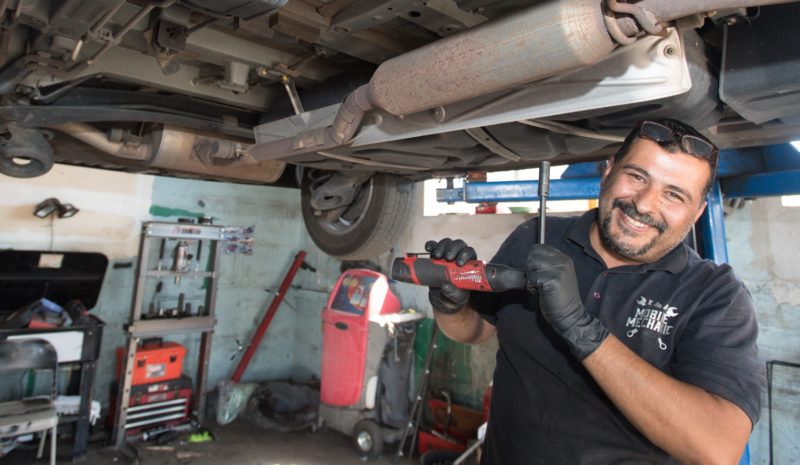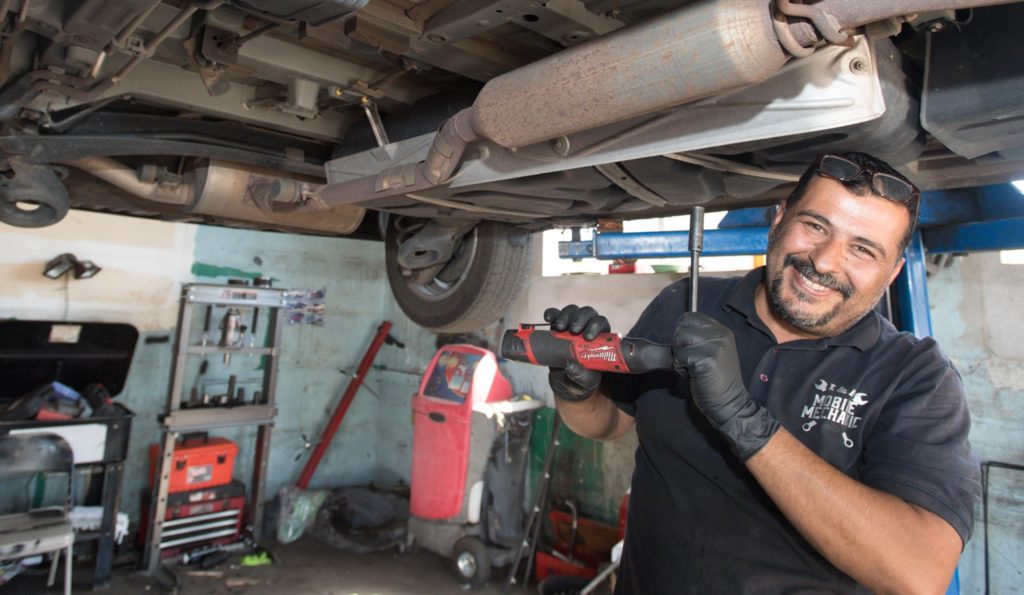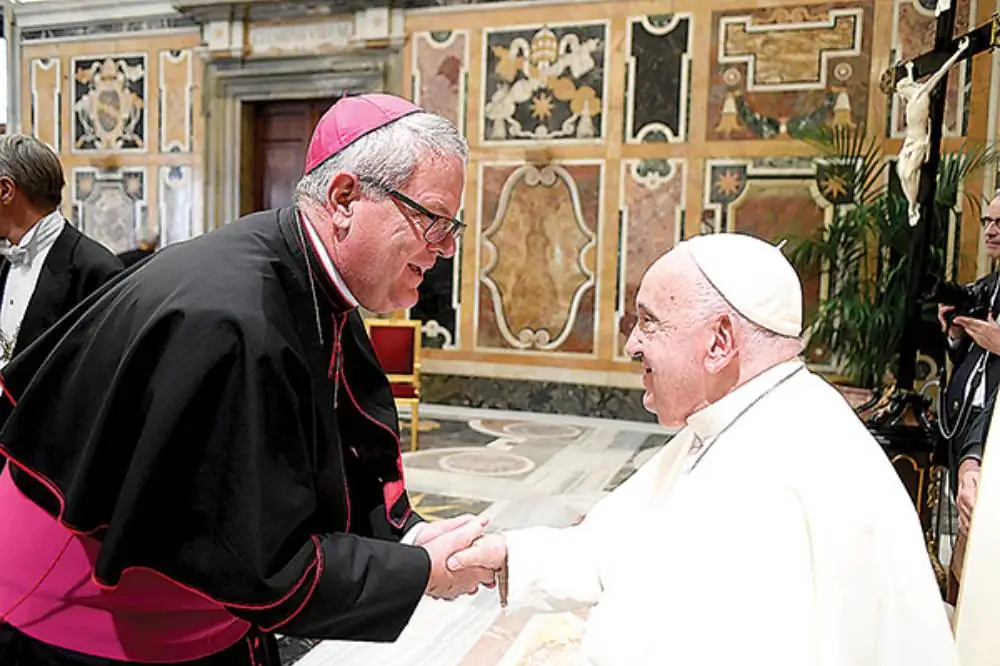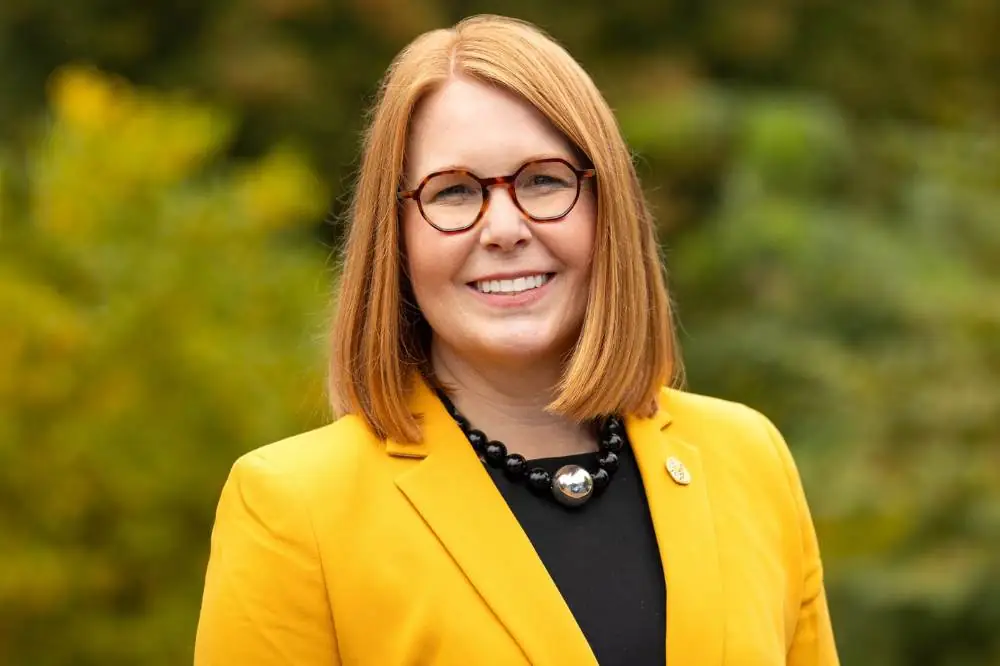
Who are we?
Reflections on a Lutheran Immigration and Refugee Services (LIRS) on-site trip by Ginny Hultquist, member of First, Greensboro.
They sat by themselves at one of the round tables, a weathered grandfather and his granddaughter, neither speaking amidst the other excited voices of families chatting with the Spanish-speaking LIRS board members. But no one spoke to this pair. No one else could interpret Kiche, their upland ancient Mayan language.
I was in Albuquerque with the Lutheran Immigration and Refugee Services (LIRS) Board to witness the work of Lutheran Family Services of the Rocky Mountains (LFSRM) which serves area immigrant and refugee people. In the lunchroom at the church we met the asylum applicants who had seen their first friendly faces, had their first restful sleep, and finally filled their stomachs.
I sat at a table with a very busy 2 ½ year old, the same age as my little grandchild, Killian, for whom I would do exactly what his parents did to keep him alive—flee. I don’t know all their stories: who was threatened, whose crops failed, whose life was in danger. I do know that people would rather have a good life in their own land if at all possible. I did see the machete marks on the dad’s arm, violence being a main reason people risk their lives to come north.
At the start of our day, we were invited into the new Habitat homes of three refugee families—two Afghan and one Congolese. Each had participated in the education classes conducted by LFSRM, a requirement before even beginning the Habitat home-ownership process. The same stringent steps applied to them as to all Habitat homeowners.
I wish you could have seen the joy of the Afghan man who enthusiastically shook our hands with his thumb and the one remaining finger left after the bomb blast in his home in Kabul; or that you could have met the Congolese man who waited 20 years in a refugee camp in Tanzania before being accepted for U.S. refugee status; or that you could have seen the face of the Afghan women who started the Habitat process alone with her 12-year-old daughter. In the last house that they had moved into three days before, two boys, ages 7 and 9, proudly showed us their room, with twin beds and personal quilts, (one with soccer squares and one with dinosaurs), made by an American friend. There was abundant joy in each house as the families shared their stories.
LFSRM also does mini-loans, so we met the “Magic Mechanic” who first was given a $4,000 loan to buy a van for on-the-spot car repair, a business he grew by handing out business cards as he drove Lyft and Uber. He paid that loan off and then bought a diagnostic repair machine to improve his business. We met him at his new shop having paid off both loans and now employing several people—all within a year.
At a dinner-reception given for us by LFSRM we met the caterers. Those two Afghan women participated in the entrepreneur training provided by LFSRM, a program funded by donors, grants, LIRS, and other Lutherans.
The mayor of Albuquerque spoke to us of the pride of his city in welcoming strangers regardless of status.
And now LFSRM and other organizations have joined hands and energy to serve the undocumented families that are bused away from the border after ICE processing. These newly-arrived people have essentially been dropped off in cities that have had to scramble to take care of these exhausted families. Their next step that day would be for volunteers to help them reach their family sponsor in the U.S. where they will wait for their court hearing. There are no federal funds for any of this: the one night of housing, food, clothing, volunteer time—it all runs on donations. And the need grows.
As I think back on this memorable day, two things stand out vividly: one is of the old Mayan grandfather and what it must have taken to risk everything at the end of his life, for the sake of his granddaughter. And the second is that of all the hopeful families I met at lunch, probably all but one family will be deported back to whatever desperate situation caused them to flee. And so, I ask, “Who are we?”
Article: Ginny Hultquist is a member of First, Greensboro. She chairs the hunger programs there as well as serving on the national board of Lutheran Immigration and Refugee Services (LIRS). She and her husband, Art, live in Greensboro; her daughter, Siri Setzer, lives in Raleigh where she and her family are members of Good Shepherd; and her son, Erik Rhyne, recently moved back to Greensboro from North Bend, Washington, where he was a member of Mt. Si Lutheran.
Photo: “Magic Mechanic Mike” by Jax Photography.



